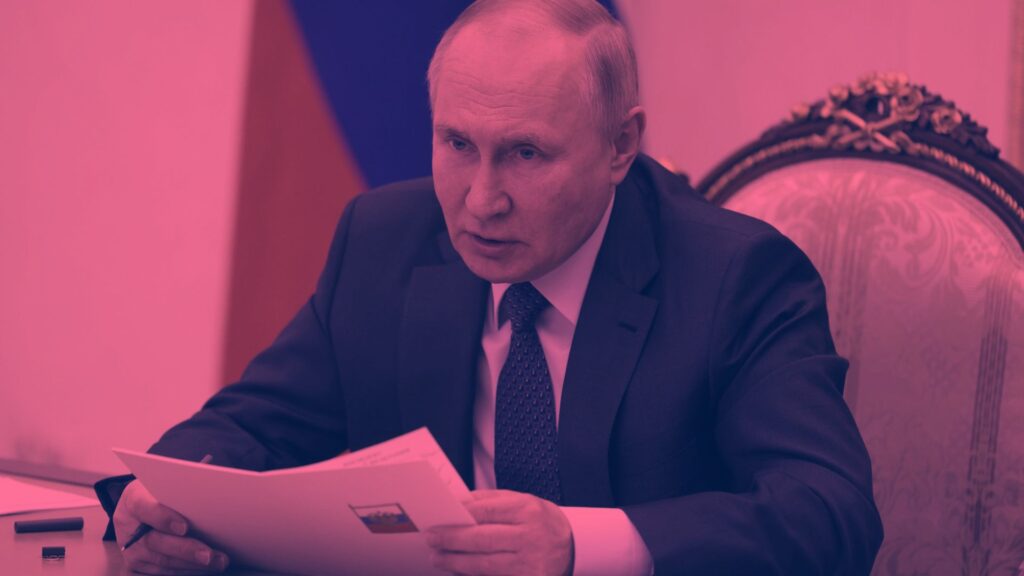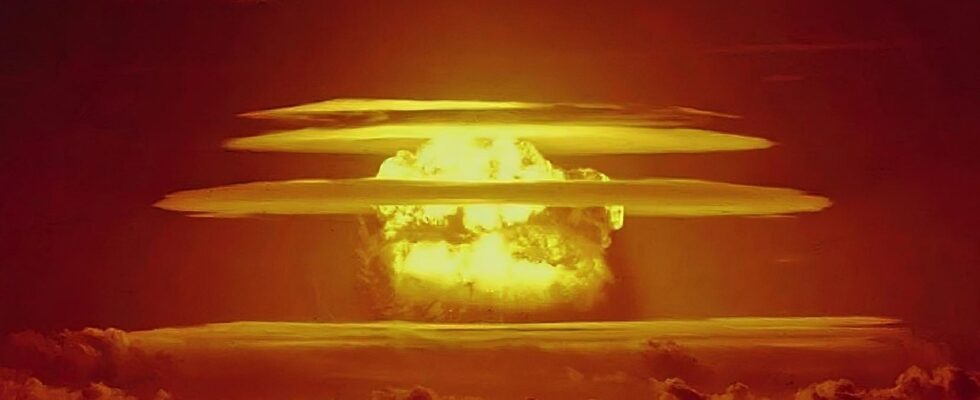US intelligence agencies are still seeking to probe Russian intentions regarding the possible deployment of a space nuclear weapon. If Moscow has denied this, Washington has not ruled out a possible maneuver in the coming year.
The threat of a Russian “space nuclear weapon” could materialize as early as this year. In any case, this is a hypothesis that the United States is working on, based on the assessments of its intelligence agencies. However, these estimates are not unanimous, neither on the timetable nor on Moscow’s real intentions.
This timetable was reported by the New York Times in its edition of February 21, 2024. According to the American newspaper, this window of a possible deployment of a nuclear charge in orbit was shared with “ closest European allies », which includes France. In mid-February, sources had already indicated to Le Monde that Paris was “ briefed “.
The actual implementation of such a weapon is, however, discussed in intelligence circles across the Atlantic. The daily thus evokes the trail of a Russian feint. It might not be a real charge, but, in the words of the New York Times, “ a dummy warhead in order to leave the West uncertain about its capabilities “.
Whether it is a real warhead or an artificial weapon, this would be done in an atmosphere of deterrence which could lead to bad calculations and dangerous interpretations by other nuclear powers. This is particularly the case for those in NATO, which include the United States, the United Kingdom and France.
Russia rejects US allegations
Officially, Russia has denied American suspicions. “ We have always been categorically opposed to the deployment of nuclear weapons in space and we continue to be so “, declared Vladimir Putin on February 20. Russia would not have this type of weaponry anyway, according to Defense Minister Sergei Shoigu.
Moscow has signed and ratified the Outer Space Treaty, which prohibits placing any nuclear weapons delivery system in orbit around the Earth. Countries are also obliged not to position this type of weapon in outer space. However, it would be possible for Russia to exit this treaty.
Previously, Moscow had accused Washington of creating a “ cunning » to influence the American Congress. This is to encourage it to adopt the aid package for Ukraine. To win the support of elected officials, it would therefore be a question of presenting the Russian threat as greater than it would be. This is what Russian state agencies have argued.

Beyond European countries, other countries in the world have been alerted by the United States, starting with China and India, two other major nuclear powers which still maintain good relations with Moscow. It was Anthony Blinken, the American Secretary of State, who was responsible for warning Beijing and New Delhi.
The American assessment, although contested by Russia, is taken seriously in Europe. It was the subject of a public comment by Emmanuel Macron on February 16, during the signing of a bilateral security agreement between Paris and kyiv. The President of the Republic called on Vladimir Putin without delay to provide explanations.
For his part, the head of the German Space Command warned that the Russian maneuver, if proven, would only risk creating losers. Russian interests would also be directly affected. An electromagnetic pulse could destroy many satellites, which would then have repercussions on Earth.
“ If anyone dares to detonate a nuclear weapon […] in space, it would more or less be the end of the use of this global common good [qu’est l’orbite] », Alerted Michael Traut, quoted by Politico. “ No one would survive such an action. […] If one makes rational calculations, no one would use such a weapon in space. »
Subscribe for free to Artificielles, our newsletter on AI, designed by AIs, verified by Numerama!
